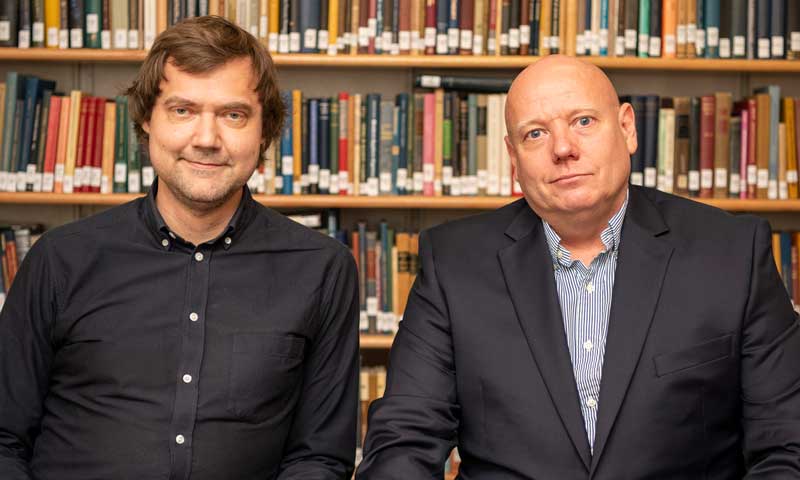Through the Department of Defense’s Engineer and Scientist Exchange Program, Naval Postgraduate School (NPS) Permanent Military Professor (PMP) U.S. Navy Cmdr. Thor Martinsen worked with respected cryptography expert and researcher Dr. Tron Omland of Norway’s National Security Authority (NSM). Martinsen and Omland are conducting collaborative research at NPS in the fields of cryptography and secure communications, with the intention for both countries to develop improved cyber security systems.
“Working together, sharing ideas, and learning from one another is crucial to realizing scientific advances,” said Martinsen.
“So far, the two main aspects of our collaborative research at the Naval Postgraduate School have been one, studying certain classes of mathematical functions that are among the most basic ingredients in the construction of cryptosystems, and two, studying ways of using artificial intelligence, in particular machine learning, to analyze the security of algorithms and ciphers,” said Omland.
According to Martinsen, their investigation into the security properties and vulnerabilities associated with Boolean functions is expanding their knowledge of cryptographic primitives and will help cryptographers design more secure systems in the future.
The capabilities of artificial intelligence and machine learning have made them valuable tools for cryptographers, cryptanalysts, and signal intelligence operators.
“Machine learning shows great promise and is quickly being adopted in a host of applications and industries,” said Martinsen. “Our adversarial machine learning research focuses on investigating machine learning vulnerabilities and developing safeguards which must be put in place before the Department of the Navy can incorporate this promising technology into its platforms, systems, and networks.”
Omland noted the cyclical nature of this research, pointing specifically to the lack of a finish line. Instead, it is a continuous and constant race between creating and breaking cyber security systems.
While Omland’s arrival at NPS marked the first time NSM has sent a research scientist to the institution, NPS’ partnership with Norway has a solid foundation.
“The Norwegian Navy (special forces) have a long history of attending the NPS Defense Analysis curriculum, which is great,” said Martinsen, who added that he hopes to see that expand in other disciplines, especially cyber and network security, in the future.
“For Norway, being a small country with relatively few research scientists, it is especially important to collaborate with our allies, both in terms of research, but also in networking,” added Omland.
Martinsen is making his own history in expanding the university’s partnerships and collaborations with Norway. In March 2021, Martinsen was the first NPS PMP to receive a Fulbright U.S. Scholar award to attend the Selmer Center for Secure Communications at the University of Bergen in Norway for the 2021-2022 academic year.
“I’m joining forces with Norwegian research colleagues to undertake important cryptographic and secure communications research,” said Martinsen.
Through academic and professional advancement and cross-cultural dialogue, the prestigious Fulbright Scholarship fosters connections with 140 countries worldwide. Program participants pursue graduate study, conduct research, or teach English abroad. Martinsen will be traveling to Norway for 90 days during the scholarship to focus on research within the cryptology field.
“I hope my operational experience as a former Navy cryptologic warfare officer, along with my academic and research skills as a Permanent Military Professor for NPS, prove useful in ongoing research taking place at the University of Bergen,” he said. “I am looking forward to teaming with Norwegian colleagues on cryptography and machine learning research of common interest.”
Omland mentioned that in all research fields, it is vital to collaborate with new people, explore new ideas and new problems, and seek new experiences.
Martinsen believes exchange programs like these also allow us to connect on a human level by experiencing the people and culture of other countries, so we can better understand and appreciate the viewpoints and concerns of others, which, in turn, bring us together.


